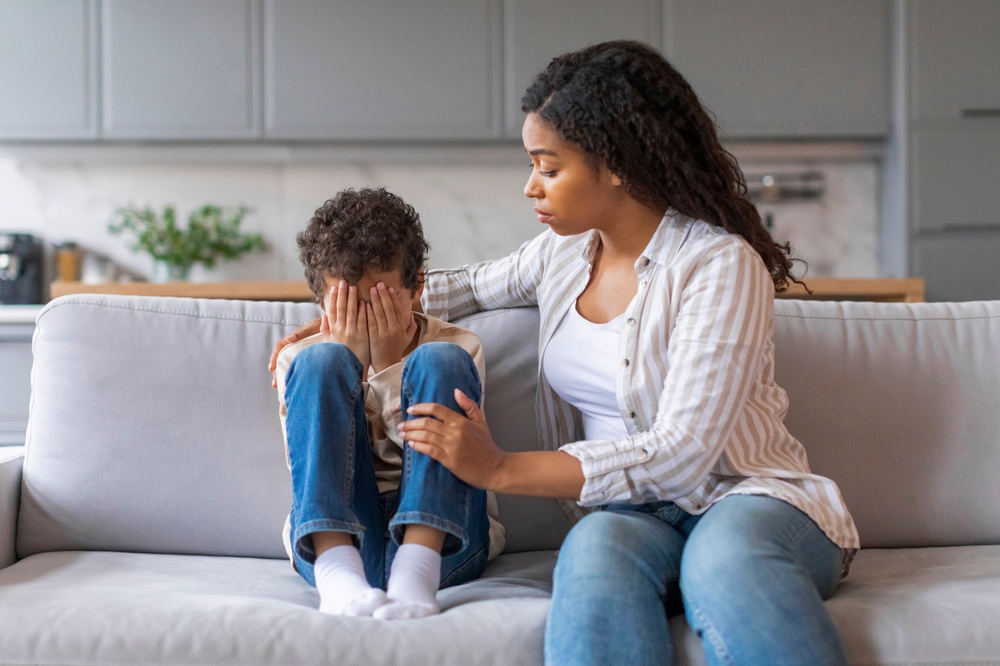Montessori strategies have gained modern momentum for their focus on independence, respect, and hands-on learning. Yet, for many grandparents who raised children under more traditional approaches, these methods can seem foreign—even frustrating. When parents following Montessori principles leave their children with Boomer grandparents, differences in discipline, routines, and play styles can lead to unintentional conflict. Understanding where these generational philosophies collide is key to building harmony between old-school love and modern parenting ideals.
1. Independence vs. Obedience
One of the biggest differences between Montessori approaches and Boomer traditions is the approach to independence. Montessori encourages children to make choices, pour their own juice, and clean up spills without punishment. For Boomers, this may look like a lack of discipline or structure. They often value respect through obedience—children doing what they’re told right away. Parents can help bridge this gap by explaining that Montessori-style freedom doesn’t mean chaos; it’s guided independence that builds confidence and problem-solving skills.
2. Play With Purpose vs. Toys as Rewards
Montessori strategies emphasize open-ended play with materials that promote concentration and creativity. Wooden blocks, puzzles, and sensory bins replace noisy plastic toys that flash and sing. Boomer grandparents, however, often see toys as gifts and rewards for good behavior. This difference can spark tension when children show more interest in sorting beans than playing with a new electronic toy. To find balance, parents can suggest gift ideas that align with Montessori learning—such as practical tools, child-sized utensils, or simple craft supplies that invite exploration.
3. Praise and Punishment Differences
Boomer traditions often rely on external motivation—praise for good deeds and punishment for misbehavior. Montessori techniques, on the other hand, avoid overpraising or shaming, encouraging children to find satisfaction in their own accomplishments. When a grandparent says, “Good job!” after every action, it can undermine the Montessori idea of intrinsic motivation. A kind conversation about acknowledging effort rather than outcome can help both sides support a child’s confidence without turning every moment into a performance.
4. Messy Learning vs. Clean Control
For parents who embrace Montessori strategies, a bit of mess means progress. Flour spilled while baking or paint-smeared hands are signs of active learning. Many Boomers were raised to see mess as disrespect or laziness, quickly reaching for the mop instead of letting kids explore. These reactions can discourage curiosity. Parents can ease this tension by setting up designated “learning zones” at grandparents’ homes—places where controlled messes are encouraged and easy to clean, showing respect for both philosophies.
5. Technology Boundaries and Screen Time
While Montessori strategies promote real-world experiences over screens, Boomer grandparents often see television as harmless entertainment or a way to bond over cartoons. This can lead to conflicts when a parent comes home to find their toddler hypnotized by TV instead of sorting shapes. Instead of confrontation, families can share clear boundaries in advance. Suggest alternatives like reading together, building blocks, or outdoor walks—activities that foster connection while staying true to Montessori values.
6. Food Freedom vs. “Clean Your Plate”
The dinner table is another battleground between Montessori approaches and Boomer traditions. Montessori encourages letting kids choose what and how much they eat, teaching body awareness and self-regulation. Many Boomers were taught to never waste food, insisting children finish everything on their plate. The result? Power struggles that turn mealtime into stress instead of nourishment. Parents can reassure grandparents that food freedom doesn’t mean wastefulness—it’s a way for kids to learn balance and mindfulness around eating.
7. Emotional Expression vs. “Tough It Out”
Montessori strategies place strong emphasis on emotional literacy, helping children name and manage feelings. In contrast, many Boomers grew up with the “tough it out” mindset, where tears or frustration were signs of weakness. When a grandparent tells a crying child to “stop crying” instead of validating their feelings, it can clash with modern approaches to emotional growth. Parents can explain that acknowledging emotions helps children regulate faster—and that empathy doesn’t spoil a child, it strengthens them.
8. Open Communication vs. Hierarchical Authority
Boomer traditions often center on respect for authority: adults set rules and children follow them. Montessori strategies value communication and mutual respect, encouraging children to express opinions and participate in decisions. When a child tells a grandparent “no,” it can sound defiant, even if it’s part of healthy autonomy. Parents can help by modeling calm conversations where both sides listen and validate. Over time, grandparents may find joy in seeing their grandchild’s growing self-awareness.
9. Safety and Risk Taking
Boomers often protect children by limiting risk—“don’t climb that,” “be careful,” or “you’ll get hurt.” Montessori techniques, however, embrace safe risk-taking as essential to development. Allowing a child to climb a low wall or use child-safe knives teaches coordination and trust. Grandparents may feel anxious watching these moments, especially if they fear accidents. Parents can ease those concerns by involving them in the process, explaining safety measures, and showing that controlled risk helps build responsible confidence.
10. Blending the Best of Both Worlds
When Montessori strategies clash with Boomer traditions, families don’t have to pick sides. Instead, they can blend the patience and modern understanding of child development with the wisdom and care of an experienced generation. The key is respect—both for how grandparents raised their children and for the evolving needs of today’s kids. Open discussions, shared activities, and gentle compromise can transform conflict into connection. After all, both generations want the same thing: happy, confident children who feel loved.
Building Bridges Across Generations
Montessori strategies and Boomer traditions may seem worlds apart, but they can coexist beautifully with understanding and communication. Every generation has lessons to offer—the Boomers’ resilience and the Montessori focus on independence can create a balanced foundation for children to thrive. Families who approach these differences with patience and empathy will not only preserve harmony but also strengthen the bond between parents, grandparents, and children.
How do you balance modern parenting with traditional grandparenting styles in your family? Share your experiences in the comments!
What to Read Next…
5 Reasons to Invest in Montessori Parenting for Your Children
How Much Are You Really Paying for Developmental Toys?
The Art of Saying ‘No’: Setting Boundaries with Love
How Parenting Trends Are Changing the Way Kids Grow Up
Why Are More Parents Questioning the Value of Preschool?
Catherine is a tech-savvy writer who has focused on the personal finance space for more than eight years. She has a Bachelor’s in Information Technology and enjoys showcasing how tech can simplify everyday personal finance tasks like budgeting, spending tracking, and planning for the future. Additionally, she’s explored the ins and outs of the world of side hustles and loves to share what she’s learned along the way. When she’s not working, you can find her relaxing at home in the Pacific Northwest with her two cats or enjoying a cup of coffee at her neighborhood cafe.









